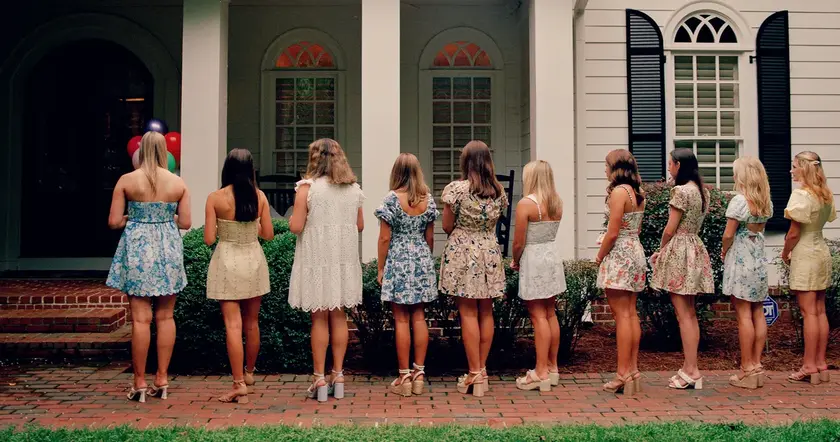T4K3.news
Sorority rush coaching faces scrutiny
Private consultants market social belonging with steep fees as families chase the dream across state lines.

A close look at private rush consultants who help teens navigate sorority recruitment and the high price of social belonging.
Rush Coaches Highlight the Cost of Sorority Life
Gracy, a 21-year-old from outside New York City, sought help to stand out in southern sorority recruitment. A private rush coach, Trisha Addicks, runs a national business and pairs clients with mentors, charging thousands for guidance on photos, videos, and online presence. Clients travel across state lines for mock rush sessions, wardrobe advice, and tailored messaging as they try to secure a spot in chapters like Kappa Kappa Gamma, Kappa Delta, or Pi Beta Phi.
Costs rise quickly. Gracy and her mother spent more than a thousand dollars on new dresses alone, while public figures and other coaches advertise higher price points for premium services. The article notes that social media trends, particularly Bama Rush on TikTok, amplify the pressure to present a flawless image. Yet even with extensive coaching, guarantees are unclear; several coaches say outcomes depend on factors beyond coaching, and some clients are still rejected. The piece also highlights the emotional toll of the process, including anxiety, competition, and the risk of depressive reactions when a bid is not secured.
Key Takeaways
"Be who you are looking for is looking for"
Addicks’s guiding philosophy in the rush bible
"The rush is life or death"
Cadenhead on the emotional stakes for participants
"Insurance, it’s five grand or more to guarantee a spot"
Cadenhead on cost expectations
"You want to be someone who looks like a loyal friend"
Addicks on social media framing
The story reveals a growing market that monetizes social belonging. In a system that prizes lineage, wealth, and curated personas, rush coaching turns a college social ritual into a paid service. It underscores how online communities cast a long shadow over campus life, with Advice Books and mock rushes shaping real-world outcomes. The economics sit alongside ethical questions about access, pressure on young women, and the potential for mental health harm when social worth hinges on recruitment outcomes.
This trend invites scrutiny of higher education culture and the scrutiny it faces from students and families alike. Questions arise about transparency, fairness, and the role universities play in a process that can feel transactional. As private coaches mint brand-new pathways to social belonging, universities may need to consider whether such coaching should be disclosed, regulated, or coupled with broader support for students navigating campus life.
Highlights
- Belonging has a price and it is paid in dresses and likes.
- Access to a house is sold as a service.
- Belonging now comes with a credit card and a rush bible.
- Photos are currency and confidence is a coached skill.
Sorority rush coaching raises concerns about cost and access
The article points to a market that monetizes social belonging, highlighting steep fees, cross-state participation, and emotional strain. Critics worry this widens inequality and pressure on families, while observers question transparency and the overall ethics of coaching young women through a highly competitive ritual.
Belonging should be earned by effort and character, not bought with a price tag.
Enjoyed this? Let your friends know!
Related News

Chicago Bears training camp kicks off this week

Tomlin wraps press conference after Steelers preseason win

Jerry Jones's management style faces scrutiny

Sydney Sweeney becomes flashpoint in culture wars

Ranking all FBS programs for the 2025 season

Jeanty struggles in preseason debut

Giants training camp opens with mixed results

Green Bay Packers training camp kicks off this week
